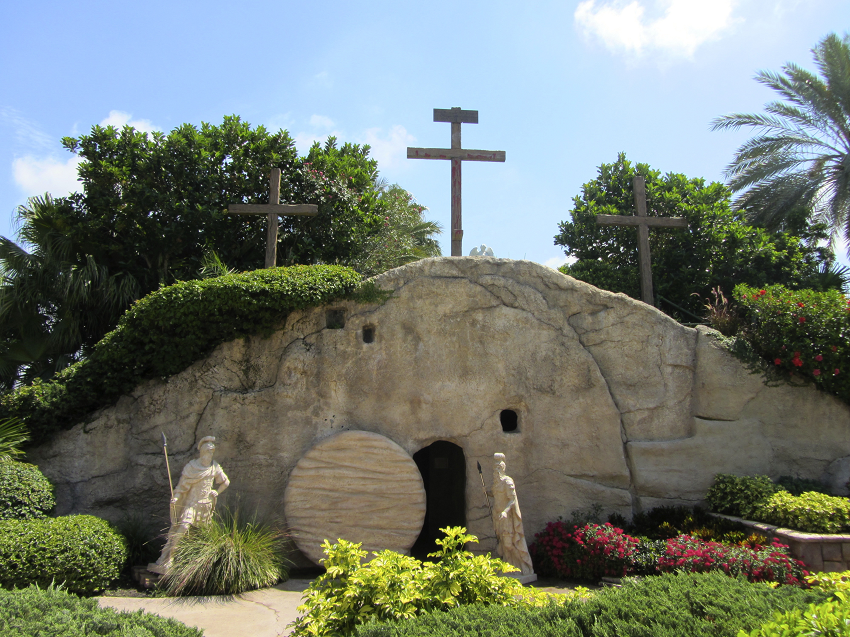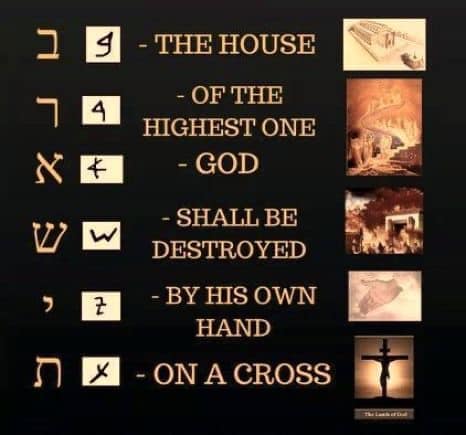A Message To America
This Hope - There is a Way, Ask, Seek, and Knock to the Truth of the Rugged Cross
Your choice alone of your own free will and accord...a wise choice to life’s journey is when we have fitted our minds as living stones for that spiritual building. We can share this with others together trusting the "Brotherhood of Man," and the "Fatherhood of God." Our God the Supreme Architect of Universe, will help us in that journey to a fulfilment that comes from the dwelling of the spirit in the heart. For through our instructive tongue we may pass to the attentive ear, the secrets remembered within a faithful breast, bound in our heart, the well spring of life, the repository of spiritual knowing and sacred truth.
The Cross - A Message To America
Turn to Gods way has brother and sisters. It is dangerous in the world today because of the immorality and evil that is in the world. We need to believe Gods word again to restore the goodness that can be found in the human heart which is the dwelling place of the Son. The Lord of our lives will not dwell in a heart that rejects salvation for the asking.
It is a strength in human nature, that men are generally happier with the spiritual value prescribed by faith, then with the raw worth of intrinsic value of things obtained.
Truth is aided by an attribute and the foundation of every virtue. To be a good man and true is that first lesson taught in masonry.
The Place of The Cross
Let your strength be apparent to those who know us not as brothers...but whom for those that ask, seek, and knock – may they be encouraged to be better than the good man they already are. Be not ashamed brothers…for Americas faith is not well understood by today’s youth – lets strengthen America together as the sacred band of brothers we are…through the Fatherhood of God.
Never be ashamed…trust the strength from our nations rule and guide to restore America.

Golgatha | Place of The Skull
The Bible tells the Human Story ...
Beginning, logically, with the creation of the earth and of the first human being, the story of our race which sprang from the first human pair continues through the first eleven chapters of Genesis. In the twelfth chapter begins the history of Abraham and of the nation of which Abraham was the ancestor. It is that nation, Israel, with which the subsequent Bible narrative is chiefly concerned, from the eleventh chapter of Genesis to the second chapter of Acts. The Gentiles are mentioned, but only in connection with Israel. It is made increasingly clear that Israel so fills the scene only because this nation was entrusted with the accomplishment of great worldwide purposes (Deut. 7:7).
The appointed mission of Israel was:
(1) to be a witness to the unity of God in the midst of universal idolatry (Deut. 6:4; Is. 43:10);
(2) to illustrate to the nations the greater blessedness of serving the one true God (Deut. 33:26–29; 1 Chr. 17:20,21; Ps. 102:15);
(3) to receive and preserve the divine revelation (Rom. 3:1–2); and
(4) to produce the Messiah, humanity’s Savior and Lord (Rom. 9:4–5). The prophets foretell a glorious future for Israel under His reign.
The biblical story of Israel—past, present and future—falls into seven distinct periods: (1) from the call of Abram (Gen. 12) to the Exodus (Ex. 1–20);
(2) from the Exodus to the death of Joshua (Ex. 21 to Josh. 24);
(3) from the death of Joshua to the establishment of the Hebrew monarchy under Saul;
(4) the period of the kings from Saul to the captivities;
(5) the period of the captivities;
(6) the restored commonwealth (from the end of the Babylonian captivity of Judah to the destruction of Jerusalem, A.D. 70); and
(7) the present dispersion and subsequent return to the land of Israel. The Gospels record the appearance of the promised Messiah, Jesus Christ, in human history and within the Hebrew nation, and tell the wonderful story of His manifestation to Israel, His rejection by that people, His crucifixion, resurrection and ascension. The book of Acts records the descent of the Holy Spirit and the beginning of a new entity in human history, the Church. The division of the race now becomes threefold—the Jew, the Gentile and the Church of God (1 Cor. 10:32). Just as Israel is in the foreground from the call of Abram to the resurrection of Christ, so now the church fills the scene from the second chapter of Acts to the fourth chapter of Revelation. The remaining chapters of that book complete the story of humanity and the final triumph of Christ.
The central theme of the Bible is Christ Jesus
It is manifestation of Christ Jesus, His person as God revealed in the flesh (1 Tim. 3:16), His sacrificial death and His resurrection, that constitute the Gospel (1 Cor. 15:1–4). All preceding Scripture leads to this; all following Scripture proceeds from this.
The Gospel is preached in Acts and explained in the Epistles. The topic of Christ, Son of God, Son of man, Son of Abraham, Son of David thus binds the many books into one Book.
As seed of the woman (Gen. 3:15), He is the ultimate destroyer of Satan and his works;
as seed of Abraham, He is the benefactor of the world; as seed of David, He is Israel’s King, “the Desire of All Nations” (Hag. 2:7).
Exalted to the right hand of God, He is Head overall to the Church, which is His body;
while to Israel and the nations the promise of His return forms the one and only rational expectation that humanity will yet fulfill itself.
Meanwhile the Church looks momentarily for the fulfillment of His special promise, “I will come again and receive you to Myself” (John 14:3). It is to Him that the Holy Spirit throughout this Church Age bears testimony.
The last book of all, the consummation book, is “The Revelation of Jesus Christ” (Rev. 1:1).
Pilgrim's Progress - Puritan John Bunyan / Full Classic Christian Audiobook
The Pilgrim’s progress is the most famous religious allegory in the English language. The Pilgrim’s Progress is an allegory because the characters in the story are personifications of human vices, human failings and human virtues.
Almost every incident in the story has its own moral significance which is not difficult for the readers to interpret or understand.
In other words, a youngster may go through this book and enjoy it as a story of brave warriors, armed knights, giants, demons, dragons, thrilling battles, and narrow escape. But for the mature or elderly readers, the story has a moral or spiritual value.
The dramatic interest of Bunyan’s allegorical novel holds us spell-bound as we go through it. At the same time, vivid portrayal of the various characters appeals strongly to our imagination.
The Pilgrim’s progress is the most famous religious allegory in the English language. The Pilgrim’s Progress is an allegory because the characters in the story are personifications of human vices, human failings and human virtues.
Almost every incident in the story has its own moral significance which is not difficult for the readers to interpret or understand.
In other words, a youngster may go through this book and enjoy it as a story of brave warriors, armed knights, giants, demons, dragons, thrilling battles, and narrow escape. But for the mature or elderly readers, the story has a moral or spiritual value.
The dramatic interest of Bunyan’s allegorical novel holds us spell-bound as we go through it. At the same time, vivid portrayal of the various characters appeals strongly to our imagination.
Significance of The Pilgrim’s Progress
The moral of the whole story is that by means of faith, hope and firm determination, a man can gain the salvation of his soul. In the process of doing so, he has to overcome his spiritual doubts, he has to overcome the temptation of despair, he has to conquer all carnal desires and forego all the pleasures of the flesh.
The seeker of the salvation must always be on his guard against the threats of the Devil who is the enemy of God and of Jesus Christ. It is also to be noted that a man can achieve salvation only if he gains the grace of God and if he remains constantly aware of righteousness of Christ who is the Redeemer.
He, who wants to achieve the salvation of his soul, the Holy spirit leads them towards success. All these allegories have made the novel great. Here is your chance to be inspired by and review history.
Throughout the eighteenth and nineteenth centuries, most English and American families who owned a Bible had a copy of The Pilgrim’s Progress.

